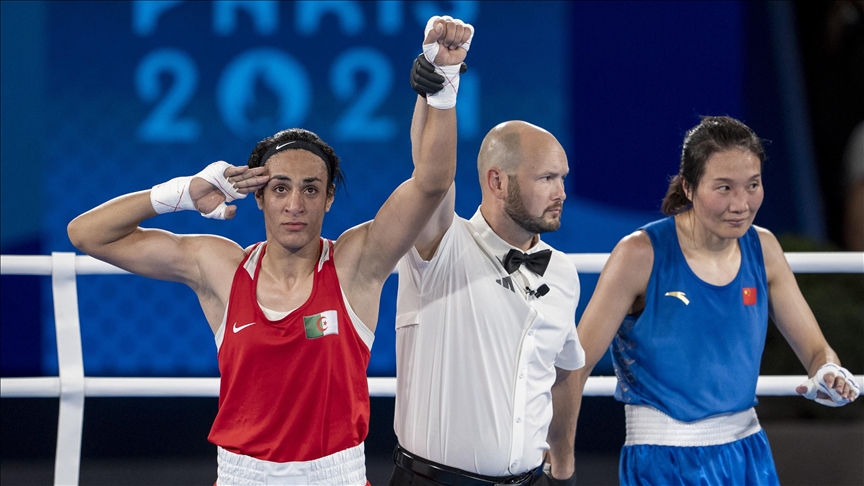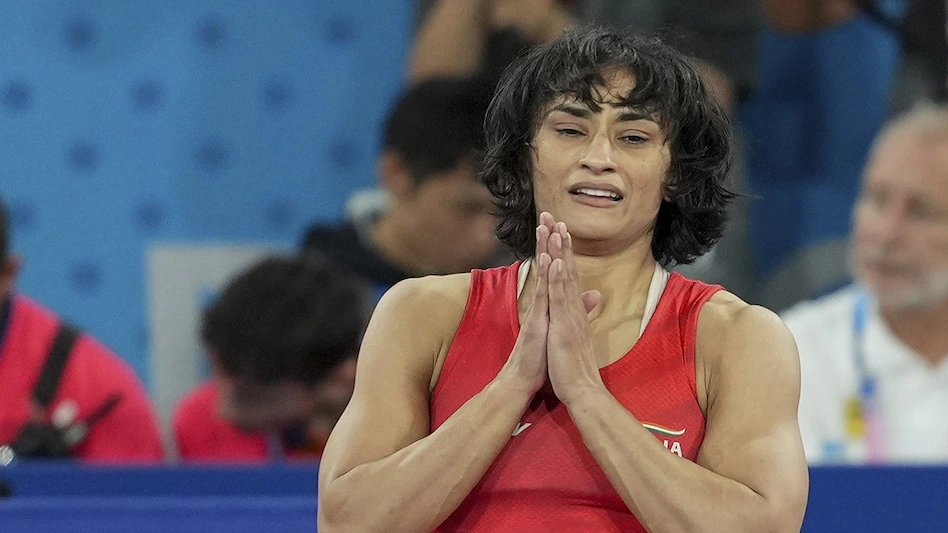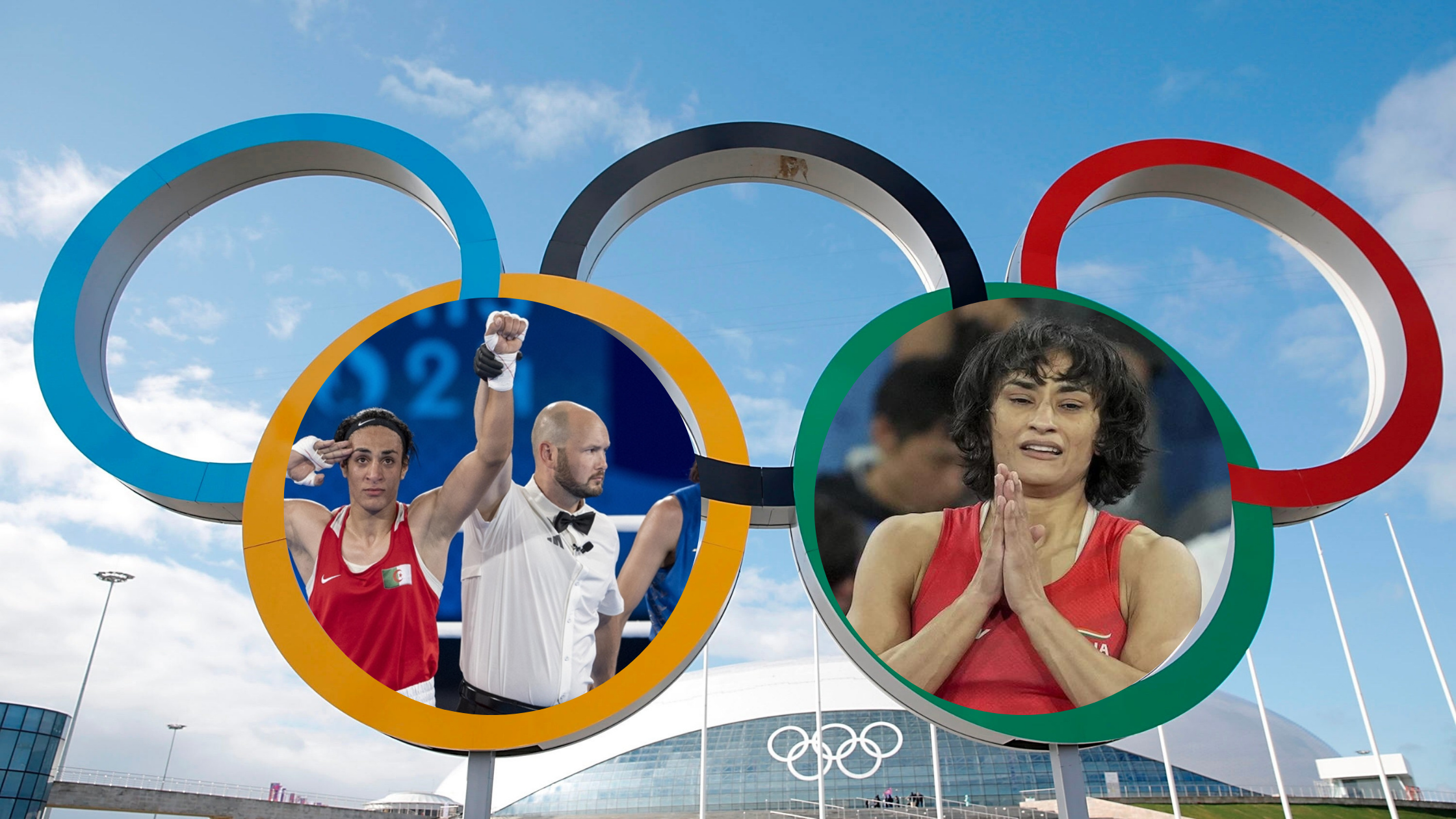The 2024 Summer Olympic Games continued from the 26th of July to the 11th of August in the city of Paris. The city became the second city to host the Olympics three times after London. The return of the games to the city in this century gathered around 10,500 athletes to compete in 32 games from 206 countries. However, this year’s Olympics will be infamously known for its many controversies, as it birthed quite a lot in comparison to its past hosts.
The Opening Ceremony of Paris Olympics
The games and the controversies around it started with a bang, on the day of the opening ceremony. The organizers arranged a performance that parodied the famous ‘The Last Supper’-a mural painted by Leonardo Da Vinci depicting Jesus Christ with his followers, which was revered by Christians worldwide. The performance faced severe backlash and scrutiny from Christian groups and catholic churches all over the world. The organizers later apologized and stated that it was not their intent to mock Christianity or any revered figure. On top of it, the ceremony included ‘Drag Queens’ performances to push inclusivity for the LGBTQIA+ community, which is a large cultural and political debate in Western countries. However, the event is a global event and many cultural and political debates are irrelevant to most of the participants and viewers. The obscenity and display of body parts in said performances were also distasteful for several viewers including children according to many viewers. This altogether brought severe scrutiny to the organizers for pushing an agenda rather than arranging a balanced event for a global audience.
Crimes In the City
Since the dawn of this decade, Paris has experienced an increase in crime rate. This also was amplified in recent months due to the election. During the games viewers, tourists, athletes and members of their team became victims of several crimes. A report stated that an Australian tourist was gang-raped in the city ahead of the Olympics. Two staffers from Australia’s Channel Nine Network faced an attempted robbery ahead of the Games. On the day when the Olympics officially opened, Argentina men’s football coach Javier Mascherano said the team’s Olympic training base was robbed. In a coordinated attack, the country’s several high-speed rail networks were put in flames on the opening day of the grand event. There also was an incidence of a Russian man being arrested in France on suspicion of plotting acts of “destabilisation” during the Paris Olympics. Israeli athletes getting death threats also concerned the authorities and the cybercrime department has to be involved. In a shocking incident, an Australian athlete was arrested during the games while buying illegal drugs from a drug dealer.
Blunder in Food and Living Arrangements in Paris Olympics
The Olympic Village, where athletes were to be housed and fed during the event, was a hot mess in both literal and metaphorical sense. In pursuit of a Green Olympics, the organisers adapted several hastily drawn policies that caused major inconvenience to the athletes. The beds installed for the athletes were made up of cardboard and the rooms had no curtains. The quarters were tiny and devoid of air conditioners even amidst the heat wave in Europe. In a high population density living arrangement where athletes were already living in compact spaces, this hampered their precious resting time in between the games. Adding to that the village was not at an optimal distance for several game events, according to the athletes causing them to be late by an hour or so in some cases. This caused athletes from several countries like the USA and South Korea to leave the village and arrange for other accommodation in nearby hotels.
The food was also a point of contempt at the event. The organisers pushed for a plant-based menu, causing several other animal-based dietary preferences to be unavailable. Due to raw material supply issues, there was a food shortage during the event. There were reports of athletes ordering takeouts to replenish the nutrient requirements that emerged due to these problems. In some instances, athletes complained about worms in food that was given, highlighting the sub-standard hygiene of the global event in one of the most famous cities of the world.
Polluted river Seine
The river Seine on the banks of which Paris is situated was decided to be the venue of triathlon relays and a main attraction during the opening ceremony. With decades-old infrastructure, the river Seine in Paris had already been filled to the brim with city sewage and the population rise in recent years made matters worse. The level of E. Coli, a bacteria prevalently found in human faeces, in the river water was much higher than the safety standards. In early July the rehearsal of the opening ceremony was cancelled due to this particular problem. On 28th July the pre-race of mixed triathlon was cancelled. The Belgium triathlon swimming team pulled out of the race on the 4th of August due to one of their athletes falling ill, after participating in the women’s triathlon the previous week in the river. Swiss athlete contracted a gastrointestinal infection and the Norwegian athlete fell ill, both caused by bacteria, after one day of men’s triathlon in the river. Several other athletes also stated witnessing faecal matter in the river while swimming and reported eye and body rash soon after the events in the water.
Imane Khelif and the Gender Debate in women’s sports

Algerian transgender boxer Imane Khelif won the gold medal in the women’s 66KG boxing category defeating Chinese boxer Yang Liu in the finals. During the games, she defeated Italy’s Angela Carin in just 46 seconds and Hungarian Luca Anna Hamori via unanimous decision in the quarterfinals and did the same against Thailand’s Janjaem Suwannapheng Tuesday to advance to the gold medal match. She was the only transgender boxer in her category and dominated the games in comparison to her counterparts. Last year she was disqualified by the IBA from participating in the boxing world championship. Her winnings faced severe backlash from all over the world and triggered the debate on transwomen’s participation in women’s space.
China Amidst Doping and pre-Olympic Match-fixing Scandal
The Chinese athletes this year had a praiseworthy performance in the Olympics, however, their sports bodies stayed under massive scrutiny throughout the events in previous cases of doping and match-fixing.
The doping controversy arose due to a 2022 investigation on the Tokyo Olympics of 2021, which revealed that around half of the athletes China sent to Tokyo were using enhancement drugs for better performance. Several of this year’s athletes from China are on that list and people as well as athletes from other countries displeased with their selection to take part in the games. Another thing to be noted is the testing agency, the World Anti-Doping Association (WADA), was also alleged to have taken part in the coverup with China’s sports body. Thus, this time several organisations including the US’s federal Anri-doping agency showed massive distrust in the international body and a public fight was seen in March regarding the WADA’s legitimacy.
In another scandal, the International Table Tennis Federation (ITTF) came under scrutiny as the body is conducting an internal investigation on its deputy director Liu Guoliang on the allegations of match-fixing and player favouring in pre-Olympic selection matches. Liu is also a veteran Chinese winning athlete and coach and serves as the president of the Chinese Table Tennis Association. It is alleged that Liu has repeatedly fixed matches and sabotaged the selection process in favouring athletes for his own political and monetary gains. This was the second time Liu was accused of this type of allegation after the 2012 London Olympics where he was the head coach of the Chenes table tennis team. The investigation has been underway inside the ITTF since June, but China’s dominance in the sport caused the investigation to slow down and uncertain.
Vinesh Phogat’s Disqualification

Indian athletes this year saw multiple strokes of disappointment throughout the games. Vinesh Phogat, the Indian wrestler in the women’s 50 KG category, was given a disqualification verdict on the morning of her gold medal bout on Wednesday. A mere 100gm overweight became the cause of her disqualification on 7th August for the final qualifier who was on her way to gold. Later she applied for the silver medal to the Court of Arbitration of Sports (CAS), but her application was dismissed and she stays devoid of any medals this year.
Faulty umpiring to Indian Men’s hockey team
The Indian men’s hockey team in this Olympics faced the consequences of questionable umpiring. In the quarterfinals against Britain, Indian defender Amit Rohidias was given a red card following his stick hitting a rival player and sent off-pitch almost 43 minutes before the last hooter. Rohidas, who is one of the finest rushers in the world and a key defender of team India, is known for his menacing drag flicks against opponents during the match. “I didn’t hit the player intentionally, it happened in the flow of the match. Still, the referees red-carded me and later FIH suspended me”, stated the player in his defence who has to sit the next semifinal.
In the semifinals, the faulty umpiring continued and weakened the team during crucial penalty shots. In a review by the TV umpire, a penalty shot was awarded to the German team, changing the decision of the field umpire. However, the decision has divided opinions as former India captain Viren Rasquinha led calls questioning the decision along with national and international viewers questioning the trajectory of the ball and whether the ball hit the stick or not, to the Germans being awarded the shot.
This year adds to the list of several frequent blunders that this international game has been going under for the last couple of years. The growing cost of hosting the games and pre-and post-game expenditures are making countries apprehensive to bid for hosting. And this array of controversies certainly doesn’t cast a good light on the games.

